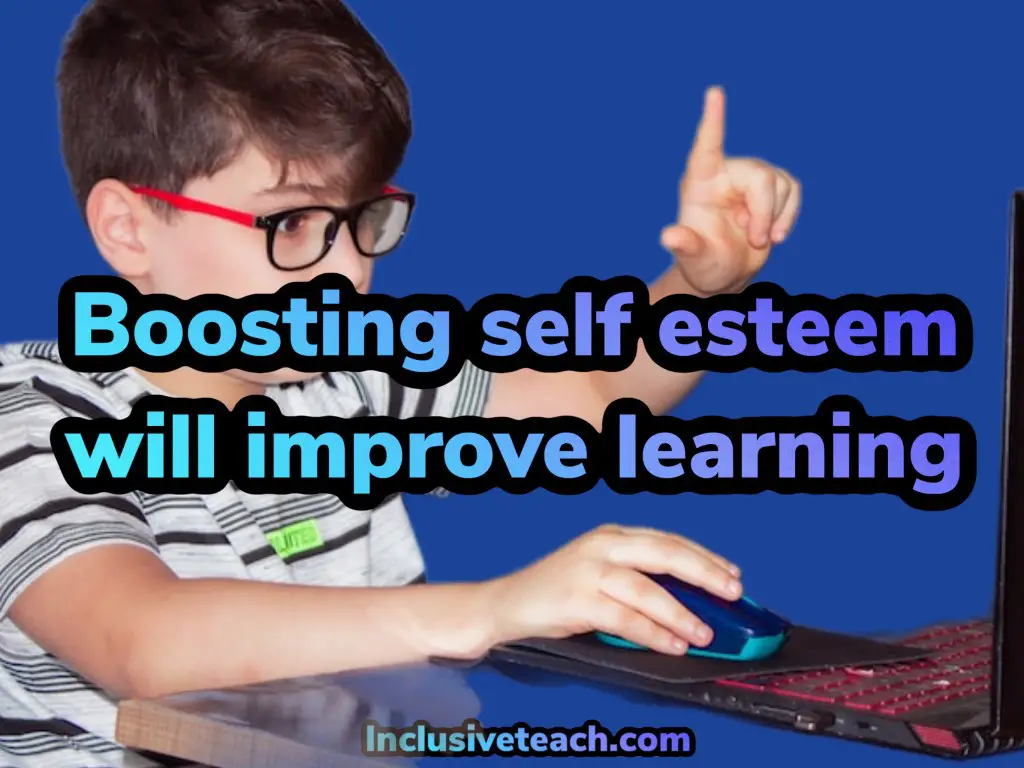How can Teaching Assistants Boost Pupils Self Esteem?
How can teaching assistants boost pupils self-esteem?
Teaching assistants can be especially important in supporting pupils’ self-esteem because they often work closely with individual pupils or small groups. They provide them with additional support and attention. This close relationship with teaching assistants can help pupils to feel valued and supported. In turn this can boost their self-esteem.
In addition, teaching assistants can act as role models for positive behavior and attitudes. The best demonstrate an unwavering belief in pupils’ abilities and show them respect and care. By fostering positive relationships with pupils, teaching assistants can help to create a supportive and inclusive learning environment. This will promote pupils’ well-being and self-esteem.
This post forms part of our series on Teaching Assistants and Recruitment.
The impact of Autism on Self-Esteem
Autistic pupils may have a different perception of self-esteem due to the unique challenges they face in social interaction – including the double empathy problem, communication, and sensory processing. Many autistic individuals experience discrimination, bullying, and social isolation, which can negatively impact their self-esteem. For some of our pupils comparing themselves to their siblings can have a real negative impact on their self-esteem.

Some autistic individuals may have difficulty recognising their own strengths and abilities. They may struggle with feelings of self-doubt or inadequacy. They may also have difficulty with abstract concepts such as self-esteem and may benefit from more concrete feedback and positive reinforcement.
It’s important to note that self-esteem can vary greatly among individuals and should be addressed on a case-by-case basis. Supporting autistic individuals in developing a positive self-image may involve strategies such as highlighting their strengths and accomplishments, providing clear and specific feedback, and creating an inclusive and supportive environment that values neurodiversity (which we will look at further in the next section).
It’s important to recognise that self-esteem is just one aspect of overall well-being. Supporting autistic individuals’ mental health and emotional well-being involves addressing a range of factors, such as sensory needs, social support, and access to appropriate interventions and services.
So how can we do this?

Creating an inclusive and supportive environment that values neurodiversity
Creating an inclusive and supportive environment that values neurodiversity involves taking a proactive and intentional approach to designing and implementing policies, practices, and programs that are accessible, welcoming, and respectful of diverse perspectives and experiences. Here are some strategies that can be used to create an inclusive and supportive environment which in turn will positively impact pupil self-esteem:
- Educate yourself and others about neurodiversity: Learn about the range of conditions that fall under the umbrella of neurodiversity, such as autism, ADHD, dyslexia, and Tourette syndrome. Read about the strengths and challenges associated with these conditions and how they can impact learning and behaviour.
- Foster a culture of respect and acceptance: Promote an inclusive and accepting classroom culture that values diversity and recognizes the unique contributions of all students. Encourage students to appreciate and celebrate each other’s differences.
- Provide accommodations and supports: Make accommodations and supports available to students who need them, such as assistive technology, sensory supports, and accommodations for testing and assignments. Ensure that accommodations are individualised and based on students’ needs and preferences.
- Encourage student self-advocacy: Encourage students to advocate for themselves and their needs, and provide opportunities for them to practice self-advocacy skills. Help students to develop self-awareness and self-advocacy skills by teaching them about their strengths, challenges, and accommodations.
- Partner with families and community organisations: Collaborate with families and community organisations to support students with disabilities and promote inclusion and equity. Seek input from families and community members and involve them in decision-making processes. Kent PACT is currently working hard to achieve this.
- Provide professional development and ongoing support: Provide professional development and ongoing support to educators and staff to help them understand and support students with disabilities. Provide opportunities for staff to learn from each other and share best practices.
Creating an inclusive and supportive environment that values neurodiversity requires a commitment to equity, respect, and accessibility. It involves recognising and celebrating the strengths and talents of all students, and working collaboratively to support their diverse needs and experiences.
So What Role Can Teaching Assistants Play in Boosting Pupil Self Esteem?
There are several ways that teaching assistants can help to boost pupils’ self-esteem:
- Offer positivity and praise for their efforts and successes. This can help students feel good about themselves and their abilities.
- Encourage students to set and work towards personal goals. This can help students feel a sense of accomplishment and pride in their progress. This is also one of the key values in the School Of Joy Approach
- Foster an inclusive classroom culture that values and celebrates diversity. When students feel accepted and valued for who they are, it can help to boost their self-esteem.
- Help students to develop their strengths and interests. When students feel competent and capable in their areas of interest, it can help to build their self-confidence.
- Encourage students to take on leadership roles and responsibilities within the classroom. This can help students feel more confident and capable.
- Offer additional support and resources to struggling students. When students feel supported and have the resources they need to succeed, it can help to boost their self-esteem







3 Comments